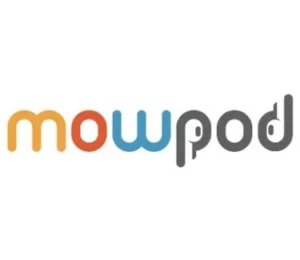Evaluating your content ROI — OMG
Jon Bennion
Online Marketing Gurus

Show Notes
Quotes
-
“When you’re writing content, start it with the end of mind of asking, What do you want out of this? And as we kind of alluded to, we want clicks, we want purchases, we want somebody to call us, and soon. One of the very first things I’d suggest is while some of you listening might be a little nervous, or you might not know how but what you all need to do is get on Google optimize you need to start running AB tests.” -Jon“You need to start trying tofigure out what sort of changes, what sort of adjustments, or tweaks do you need to be making so that the content continues to work after the click and you get more of those clicks.” -Jon“I think the key part here is understanding your marketing funneland understanding the purpose of each piece of content. We talked earlier about that thumb-stopping piece of content that’s gonna drive engagement. When you have this amazing image that you’re going to post on Facebook or LinkedIn that’s gonna get hundreds of people to click on your post or maybe they visit your website, the expectation isn’t that they are gonna go to your homepage and buy whatever your products or services are. It is that they have now raised their hand. They have now self-selected to be part of your audience.” -Ben“Let’s talk about a buyer’s journey from a B2B perspective. Typically, when we’re setting up funnels the very first thing that we do is say, ‘Okay, we need to attract them.’ We’re gonna use things like SEO, we’re gonna use our blogs, our social media, we might do a little YouTube, a little marketing. We take a stranger and we’ve now turned them into a visitor.” -Jon“So the next step is we need to convert them. This is where we are going to specialize in making sure our website has the right stuff, that our landing pages are on point, we’re gonna use some sort of remarketing or retargeting to get those people back so that they can become the next step which is what we want, leads.” -Jon“You’re going to use a combination of different strategies and tactics but when you’re evaluating it, you have to be honest with yourself. Sometimes you’re going to produce content which you think is just amazing and it’s gonna have a poor result. Sometimes that’s hard. Well, probably the best thing you can do is not use that piece of content or maybe tweak it.” -Jon“To me when you’re talking about evaluating your content, not all content is meant to get someone from Google to your website to conversion.You need to think about what is great as an introductory piece of content, what’s a converting piece of content to get your contact information, what is meant to drive someone into your sales funnel, and what’s really going to push them over the edge.” -Ben “I think the hard part for content marketing and evaluation is that your content can be useful in a couple of different places. So assigning a dollar value or an ROI to a piece of content can be really, really challenging.” -Ben “Because content can be used in so many different ways, one thing that I say and we talk a lot about the growth of an organic channel so sometimes SEO gets a lot of credit when maybe it wasn’t SEO that actually drove them to that visit. Maybe they saw something on LinkedIn and did a Google search, I guess that’s still kind of technically SEO but it’s not what got them interested to you in the first place.” -Jon“Right, then you get into a multi-touch attribution problem.” -Ben “Attribution modeling is extremely difficult especially for companies that are producing a lot of content. What I would say is that we know that really good content marketing can work. We know that producing valuable information and then sharing that on the platforms is effective.” -Jon“Set up Google Analytics, Search Console. Do your very best to track if you put up content, what sort of engagement it has but just be open to the idea that you might not be able to track it perfectly and going the distance is going to be important.” -Jon“When you’re talking about content business and driving organic growth, you’re not going to see results right away. That’s why most brands when they first start they shy away from content. They don’t want to invest the time as it’s going to take a long time to scale and what inevitably happens is those businesses see linear growth, they get to a point and then it flatlines. They get stuck and they get a ceiling.” -Ben“When you’re constantly investing in organic growth, you’re creating an asset that becomes morevaluable over time, and the more that you invest, you’re not just getting a sort of one unit of content value, you’re also building your domain authority.” -Ben
Up Next:
-
Part 1When to prioritize organic growth strategies — OMG
This week we're going to talk about driving business results without buying your traffic. Joining us is Jon Bennion, the CEO of Online Marketing Gurus, a sponsor of the MarTech podcast, and an agency that specializes in SEO, AdWords and social media advertising. In part 1 of our conversation, we discuss when to prioritize organic growth strategies.
Play Podcast -
Part 2How organic growth is different than SEO — OMG
This week we're going to talk about driving business results without buying your traffic. Joining us is Jon Bennion, the CEO of Online Marketing Gurus, a sponsor of the MarTech podcast, and an agency that specializes in SEO, AdWords and social media advertising. In part 2 of our conversation, we discuss how organic growth is different than SEO.
Play Podcast -
Part 3Blending Organic & Paid Growth channels — OMG
This week we're going to talk about driving business results without buying your traffic. Joining us is John Bennion, the CEO of Online Marketing Gurus, a sponsor of the MarTech podcast, and an agency that specializes in SEO, AdWords and social media advertising. In part 3 of our conversation, we discuss blending organic and paid growth channels.
Play Podcast -
Part 4SEO strategies in a COVID-world — OMG
This week we're going to talk about driving business results without buying your traffic. Joining us is John Bennion, the CEO of Online Marketing Gurus, a sponsor of the MarTech podcast, and an agency that specializes in SEO, AdWords and social media advertising. In part 4 of our conversation, we discuss SEO strategies in a COVID-world.
Play Podcast -
Part 5Evaluating your content ROI — OMG
This week we're going to talk about driving business results without buying your traffic. Joining us is John Bennion, the CEO of Online Marketing Gurus, a sponsor of the MarTech podcast, and an agency that specializes in SEO, AdWords and social media advertising. In part 5 of our conversation, we discuss evaluating your content ROI.
-
Part 6Defining your brand — Alex Chrisman // Alta
This week, we're going to talk about the process of building a brand that not only resonates with your team, but helps to scale your business in a way that makes sense to your clients. Joining us is Alex Chrisman, the Founder of Alta, which is a brand and creative strategy consultant that I hired to help me develop a brand at a startup I worked on - called Handel. In part 1 of our conversation, we discuss defining your brand.
Play Podcast










